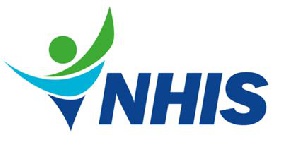The National Health Insurance Authority (NHIA) will from November, 2014, extend its Capitation as provider payment method to cover the Volta, Upper East and West Regions to enhance the efficiency in claims payment.
Mr Nathaniel Otoo, NHIA Deputy Chief Executive Officer (CEO) in-charge of Administration, said the Authority with the assistance of the decentralized Information Services Division was able to carry out public education and sensitization in the three regions on the pending implementation of the Capitation.
He said the pilot programme that was carried out in the Ashanti Region, was met with a number of challenges, however, its successful implementation led to a reduction in provider services cost from 30 per cent of national cost to 25 per cent.
“The National Health Insurance Scheme (NHIS) benefit package covers 95 per cent of diseases and it is a pro-poor policy,” Mr Otoo said in his remarks on Tuesday in Accra, at the 2014 Civil Society Policy Forum of the Universal Access to Healthcare Campaign.
The forum on the theme: “Towards Achieving Universal Health Coverage (UHC) in Ghana” was attended by stakeholders in the health sector and civil society organizations.
Mr Otoo observed that the national coverage of the NHIS as at the close of 2013 was10.14 million, which constituted 38.8 per cent of Ghanaians.
He said of the total coverage, children represent 46 per cent, the poor and vulnerable 12.15 per cent, whereas the informal sector constitutes 34 per cent.
The Deputy CEO said about 78 per cent of the Scheme’s funds was generated through the 2.5 per cent value added tax (VAT), in addition to the interest generated from its invested funds.
He said the scheme provides free healthcare for maternal healthcare delivery, as part of efforts to attain the millennium development goal 5, adding that, the aged also enjoy free healthcare.
Mr Otoo said 2014 had been a challenging year for the NHIA, explaining that, the falling rates of the cedi against the dollar had led to an increase in the cost of imported drugs.
He noted that other challenges bedeviling the Scheme was weak pharmaceutical providers, and fraud on the part of service providers.
He said with the introduction of the biometric registration, the problem of fraud would be eliminated or reduced to the barest minimum.
Mr Otoo said as part of efforts to address the issue of fraud on the part of service providers, who present fake claims, the Scheme would soon be introducing a new system, whereby clients who visit health facilities would receive text messages from the Scheme, stating the health facility visited and the kind of diagnoses they went through.
Dr Steve Manteaw, Campaign Coordinator of the Integrated Social Development Centre (ISODEC) in his presentation on Sustainable Financing of UHC in Ghana, suggested that a law should be passed to ensure that a percentage of the corporate social responsibilities of mining and oil and gas companies be allocated to the NHIA.
He further suggested that a talk tax on mobile phone calls be used to revamp the NHIS, he also called for the imposition of special tax on tobacco, alcohol and luxury goods to fund the Scheme.
Dr Tony Seddoh, Operations Director of the Centre for Health and Social Services (CHeSS), urged government to ensure that the Community-based Health Planning and Services (CHPS) were maintained in good status.
He explained that because CHPS facilities were built without the community involvement, their maintenance had become a problem, stating that some were now in deplorable states.
Health News of Wednesday, 22 October 2014
Source: GNA

















